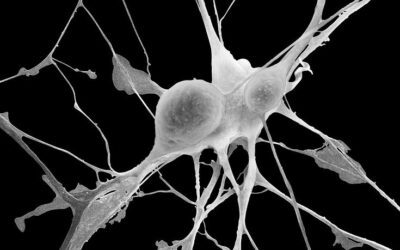How to make Positive Affirmations in Therapy?

Positive affirmations are simple yet powerful statements that can help to reprogram our subconscious mind, challenge limiting beliefs, and promote self-growth and improvement. By regularly repeating affirmations that align with our goals and values, we can cultivate a more positive and empowering mindset and take proactive steps towards creating the life we desire. This article explores the science behind positive affirmations and provides guidance on how to effectively incorporate them into your self-improvement practice.
The Science of Positive Affirmations
Research in psychology and neuroscience has shown that the words we use and the thoughts we think can have a significant impact on our emotions, behaviors, and even our physiology. Positive affirmations work by tapping into the power of self-suggestion and the brain’s ability to adapt and change through a process called neuroplasticity.
When we repeat affirmations consistently, we are essentially training our brain to focus on positive thoughts and beliefs, which can help to counteract negative self-talk, reduce stress and anxiety, and boost self-confidence and motivation.
Crafting Effective Affirmations
To maximize the impact of positive affirmations, it’s important to craft statements that are specific, present-tense, and aligned with your personal goals and values. Some tips for creating effective affirmations include:
Start with “I am”: Begin your affirmations with the words “I am,” which helps to reinforce your personal power and agency.
Keep it positive: Focus on what you want to achieve or embody, rather than what you want to avoid or eliminate.
Be specific: Use clear and concise language that reflects your desired outcomes or qualities, rather than vague or generic statements.
Evoke emotion: Choose affirmations that resonate with you on an emotional level and that evoke a sense of excitement, confidence, or empowerment.
Repeat regularly: Consistency is key when it comes to affirmations. Aim to repeat your affirmations daily, either out loud or silently to yourself, to reinforce their impact.
Examples of Positive Affirmations
Here are some examples of positive affirmations for various areas of self-improvement:
Self-confidence:
“I am worthy of love, respect, and success.”
Abundance:
“I am open and receptive to abundance in all areas of my life.”
Health and well-being:
“I nourish my body with healthy foods and positive thoughts.”
Relationships:
“I attract loving and supportive relationships into my life.”
Career success:
“I am confident in my skills and abilities and trust in my path to success.”
While positive affirmations can be a valuable tool for self-improvement, it’s important to recognize that they are not a magic solution or a substitute for action and effort. Critics of affirmations argue that they can promote a false sense of positivity or a denial of reality, particularly if they are not backed up by concrete steps towards change.
To maximize the effectiveness of affirmations, it’s important to pair them with a willingness to confront challenges, take inspired action, and make necessary changes in our lives. Affirmations should be viewed as a complementary practice to other forms of self-improvement, such as goal-setting, skill-mastery and staying focused on the goals that let us succeed.
Types of Therapy


























0 Comments